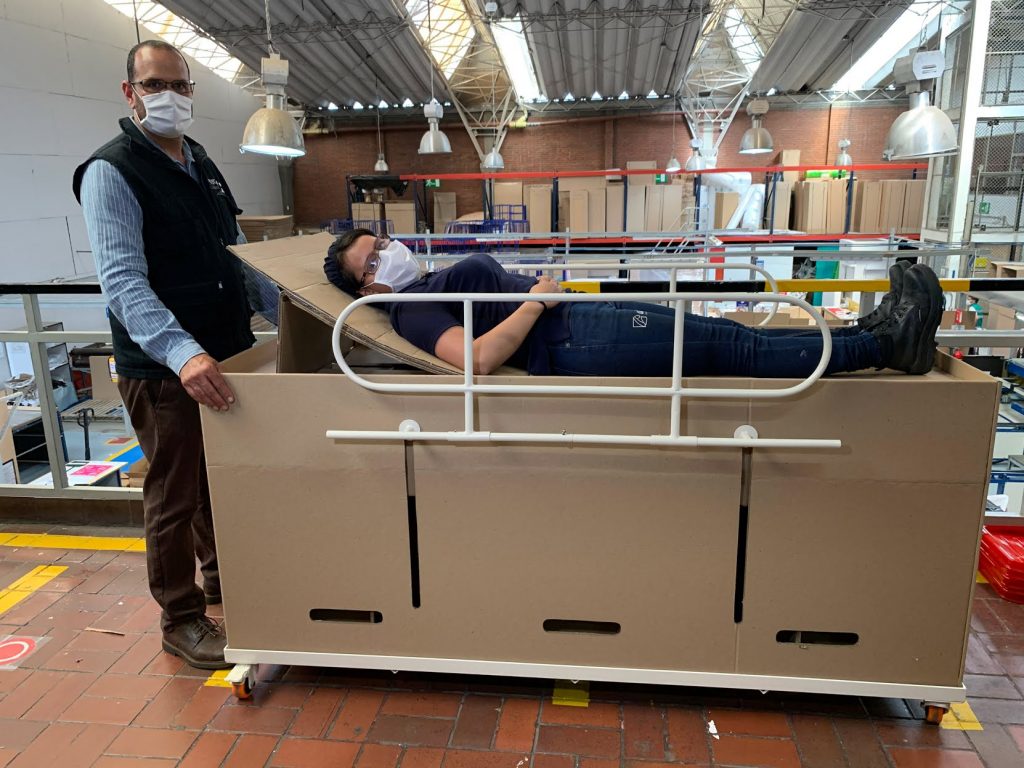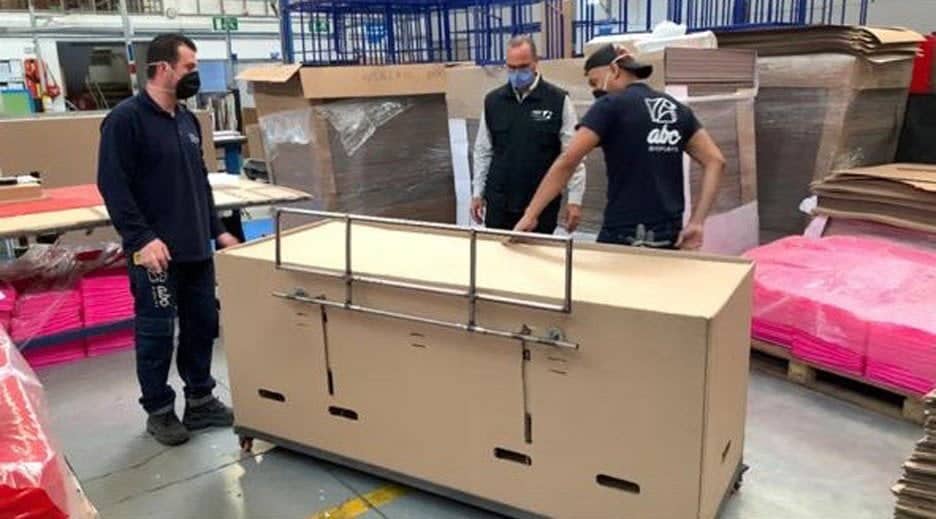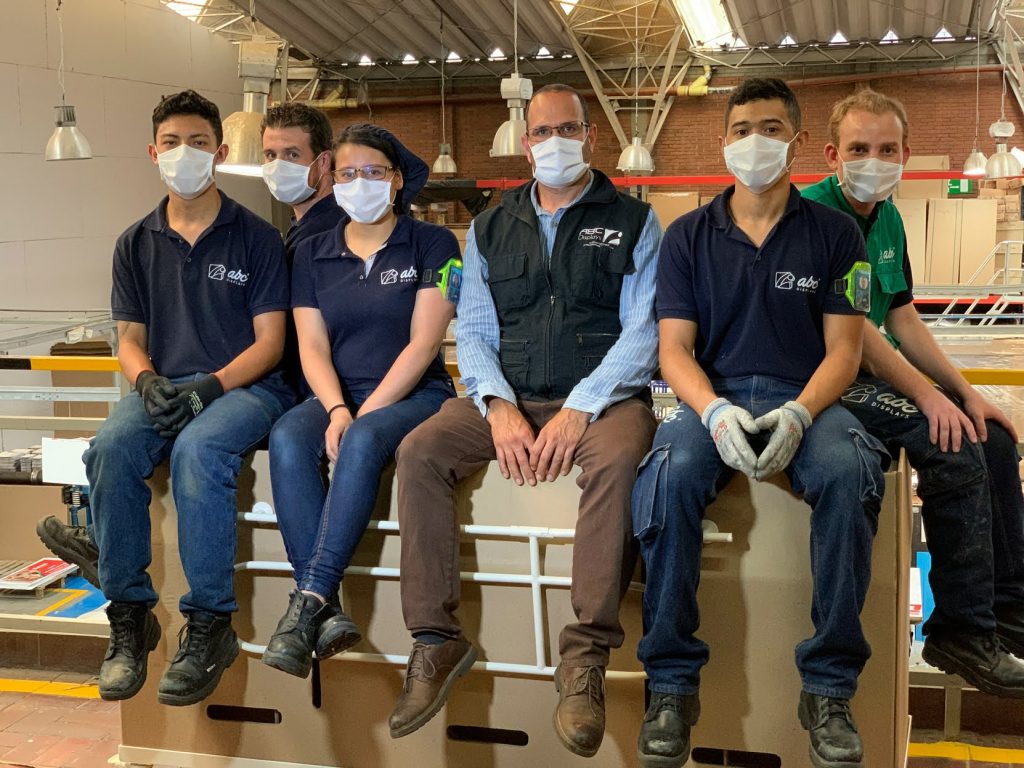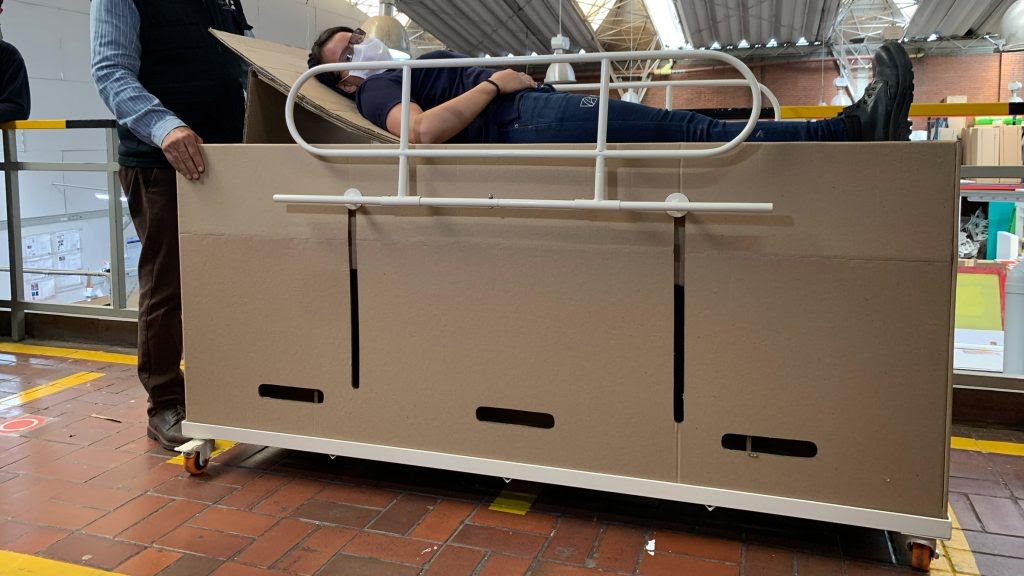Design has a great power of synthesis, with Palladio's lesson always in mind: form at the service of function.
ABC Display, a Colombian company specializing in advertising materials, has begun to manufacture and distribute a low-cost hospital bed. It is a complement made of cardboard and intended to meet the demand represented by patients suffering from coronavirus.
The special feature of this cardboard hospital bed is that if things go wrong, each bed can be quickly reconfigured to become a coffin (always made of cardboard).
Rodolfo Gomez, CEO of ABC, says that the idea for these hospital beds came to him after seeing the terrible situation in neighboring Ecuador. Morgues were overwhelmed and the government had to distribute emergency coffins to prevent bodies from coming left on the streets.

“These hospital beds are a dignified solution when you consider the alternative of having to lie on hospital floors and thrown in mass graves if you die", Gómez said.
Colombia currently has over 25.300 coronavirus cases and has recorded over 800 deaths.
The ecological versatility of transforming the bed into a cardboard coffin allows to isolate the corpses without having to manipulate them, protecting the medical staff.
From hospital beds to cardboard coffins
The entire transformation procedure in the event of the patient's death allows the bed to be converted into a coffin in less than 18 seconds.

Like a normal hospital bed, the cardboard design has slots on the sides for the railings and space for the brakes, so it can be mounted on wheels. It can obviously be set up with sheets and blankets.
ABC Display said it consulted with doctors and hospital staff during prototyping to make sure the bed was the best size for coronavirus patients.
Why cardboard?
Cardboard was chosen for several reasons. According to recent studies, the coronavirus can survive on cardboard surfaces for 24 hours, one third that of materials such as wood, metal and plastic.
Each bed can be shipped flat-packed (a bit like IKEA furniture) and the corrugated cardboard is lightweight but strong enough to support 150 to 200kg.

It also minimizes environmental impact, as it can be easily recycled after use, if not used as an emergency burial device.
ABC Display is sending a donation of cardboard beds to Leticia, in the Amazon region bordering Peru and Brazil. The local hospital has no ICU bed.
ABC Display estimates it can produce 3000 beds per month if needed.
I do not dispute the urgency and versatility required for emergency solutions like this. This doesn't seem like the time to be squeamish, I know, but I'm struck by the sheer industrial "efficiency" of cramming the sick and dead into the same container.


